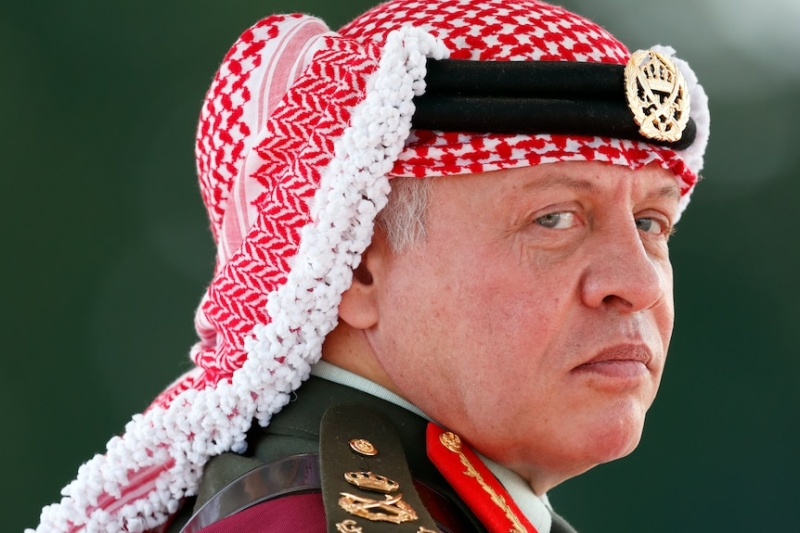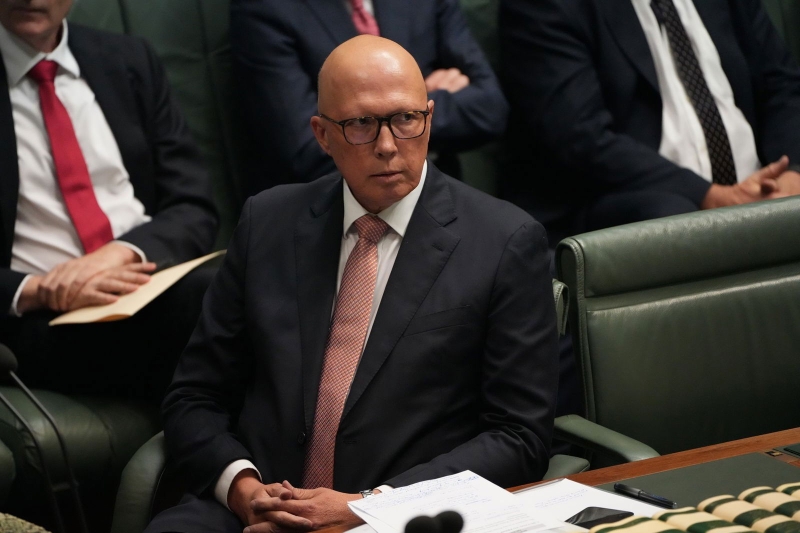In short:
Middle Eastern leaders have rejected Donald Trump’s suggestion the US should take control in Gaza and resettle its Palestinian population.
The president’s policy represents a major departure from established US foreign policy.
What’s next?
Jordan’s King Abdullah is expected to travel to Washington next week, to discuss stability in the region with President Trump.
Donald Trump's pitch for the United States to take control of Gaza, turning it into the "Riviera of the Middle East" and resettling Palestinians has been met with scorn by Arab leaders.
The major upheaval of US foreign policy was announced alongside Israeli Prime Minister Benjamin Netanyahu at the White House, and has been described as undermining decades long efforts to achieve a two-state solution in the region.
Trump live updates: Follow the fallout of the US president's Gaza comments in our live blog.
The countries singled out by Mr Trump as havens for more than 1.5 million Gazans, Jordan and Egypt, have both rejected the idea.
Jordan's King Abdullah is expected to travel to Washington DC next week, where the issue will now dominate discussions.
"His Majesty King Abdullah II stresses the need to put a stop to settlement expansion, expressing rejection of any attempts to annex land and displace the Palestinians," the royal court said in a post on social media.
He met with Palestinian leader Mahmoud Abbas in Amman on Wednesday.
The Palestinian Authority, which controls the West Bank, said the Trump proposal was a "serious violation of international law."
King Abdullah II of Jordan has already rejected Donald Trump's proposal. (Getty Images: Max Mumby/Indigo)
"President Mahmoud Abbas and the Palestinian leadership expressed their strong rejection of calls to seize the Gaza Strip and displace Palestinians outside their homeland," the official Palestinian news agency WAFA reported.
Trump's Gaza plan has the potential to spark disaster on a huge scale
Photo shows Trump purses his lips in front of a US flag
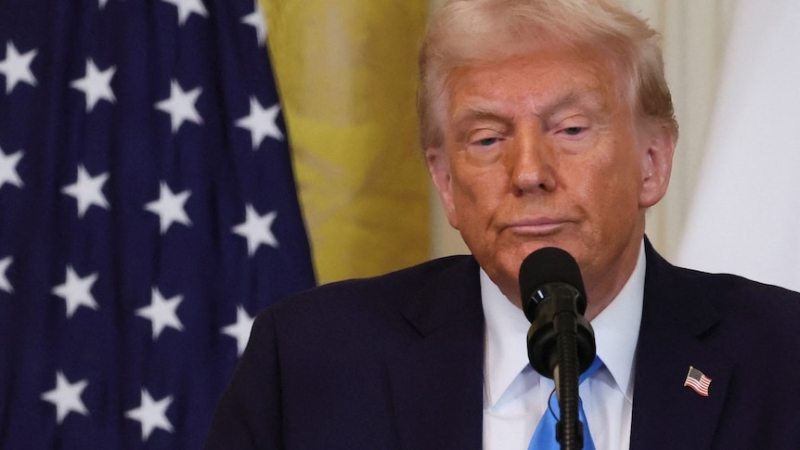
"The President added that the Palestinian people will not give up their land, rights and holy sites, and that the Gaza Strip is an integral part of the land of the State of Palestine, along with the West Bank and East Jerusalem, occupied since 1967."
The United States' main ally in the region also criticised the policy.
"Saudi Arabia rejects any attempts to displace the Palestinians from their land," its foreign ministry said in a statement.
"Saudi Crown Prince Mohammed bin Salman has affirmed the kingdom's position in 'a clear and explicit manner' that does not allow for any interpretation under any circumstances."
Hamas, which had been fighting Israel in Gaza until a ceasefire came into force almost three weeks ago, insisted it would not allow the plan to go ahead.
"What is required is to end the (Israeli) occupation and aggression against our people, not to expel them from their land," senior official Sami Abu Zuhri said.
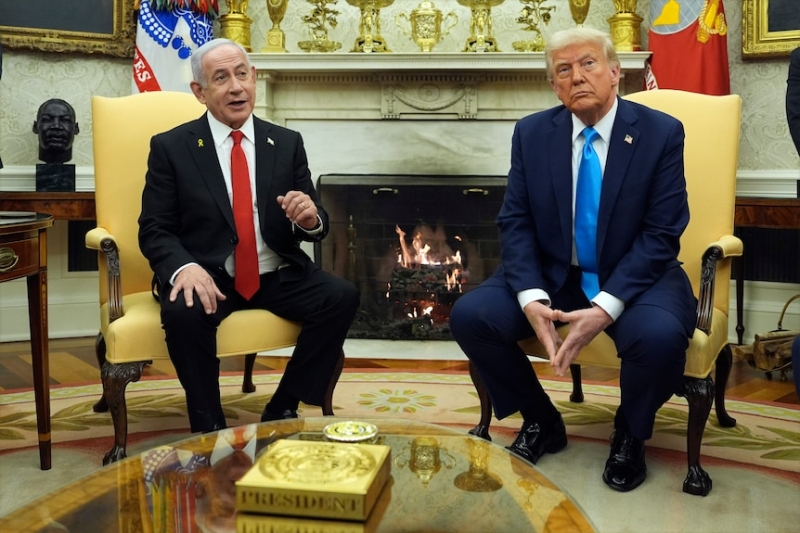
Israel's Prime Minister Benjamin Netanyahu was the first leader to visit Donald Trump after his return to the White House. (AP: Evan Vucci)
Gazans insist they are not going anywhere
Residents of Gaza have told the ABC they are not prepared to go anywhere.
"This project will fail — if the people wanted to leave Gaza they would have left before, currently they can't, all the people would rather die in Gaza than leave," one said.
"We will say to Trump, to the Arab governments, to the Arabs before the Israelis, we are steadfast on our land, thank God," said another.
Another woman, who the ABC joined as she returned to her destroyed home in northern Gaza, insisted the Palestinian people should be the only ones making the calls about the future.
"Where is our decision? Where is the UN Security Council? Where is the democracy that they talk about?" Yasmin Salah said.
"I'm the one that wants to choose, I decide whether to leave or stay."
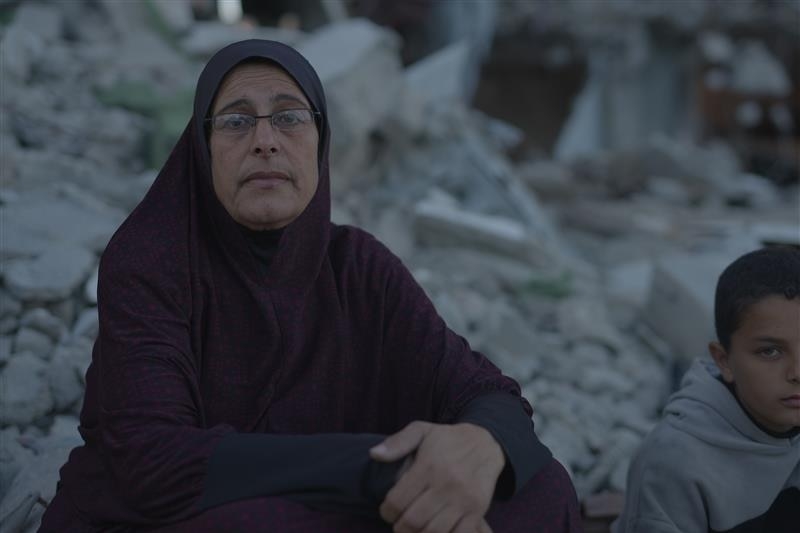
Gaza resident Yasmin Salah says she does not want to leave her home. (ABC News)
The only support for the proposal, within the Middle East region, appears to come from within Israel.
Hard line right wing politicians, including the controversial former national security minister Itamar Ben Gvir has welcomed the idea.
He has even floated rejoining Benjamin Netanyahu's coalition, which he quit in protest of the recent ceasefire with Hamas in Gaza, if the idea goes ahead.
The 'red line' for Jordanians with memories of the Nakba
The memories of previous moves to resettle Palestinians loom large for the countries President Trump expects to do the heavy lifting.
"Egypt and Jordan consider this as a red line — it is something probably could be an existential threat for Jordan in that sense," Hasan al Momani, director of the Center for Strategic Studies at the University of Jordan told the ABC.
"Let us assume a situation where Jordan accepted this — then what's the next step?
"Accepting no Palestinian state? Accepting moving people in the West Bank to Jordan?
In Jordan, more than half the population are of Palestinian descent — many with families spread across Jordan, the West Bank and Gaza.
They have seen displacement before, such as during the 'Nakba' — the conflict after the State of Israel was established – and have no appetite to experience it again.
But President Trump may have a significant lever he can pull to convince countries like Jordan to toe the line.
He has already shown his willingness to reshape America's foreign spending to suit his political goals, and aid into the Middle East could follow suit.
Jordan, for example, receives US$1.7 billion ($2.7 billion) annually.
"Is it in the interest of the United States to practice pressure, where such pressure can destabilise Jordan that in that sense?" Professor Momani asked.
"Jordan is a peacemaker.
"Jordan doesn't mind in helping the Palestinians, but sending Palestinians [there] has political and legal implications that negatively would impact the Palestinian people and their rights."

